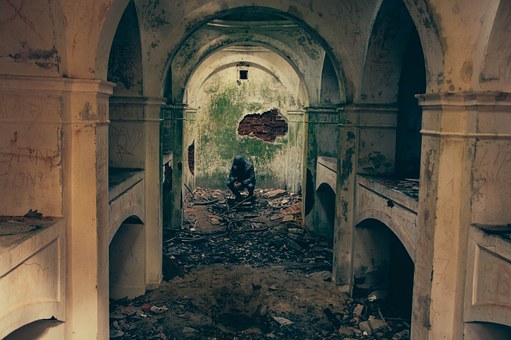While I stand, in principal, on the same side of the isle as Parris Pack insofar as the continuing science versus religion debate rages, I find in his thesis the same fundamentalist intolerance that he claims to abhor. Within the same breath that he condemns religious extremists for their dependence upon “unreasonable absolutes,” his humanistic sounding cure is “eradication at all costs.” That sort of rhetoric is more apt to be spewing from the pieholes of extremists of any stripe, not from someone steeped in the logic and reason of empirical fact-finding.
Personally, Parris sounds like a man who I would like to sit down with over a few Spaten Lagers and engage in a spirited debate over several topics. He is, obviously, passionate in his beliefs, and while my article might seem critical of his thesis, I should reiterate that I share his astonishment at the inability of humankind to discard themselves of bogeymen and fairy tales and the apparent horrors that follow such foolishness.
The remedy for the problem that I find troubling
It is not his philosophical position that I disagree with; it is his remedy for the problem that I find troubling. Allow me to interject a bit of my Father’s wisdom, who would say to his idealistic son, “You can’t fix the world, kid.”
 While Parris Pack’s intentions are, in some respects, admirable and noble in my opinion, they are also that most dangerous of things, uncompromising. It is the spirit of compromise, which makes this unique Constitutional Republic known as the United States a working, if somewhat hobbled system. It is only through example that malevolent and antagonistic cultures can be made aware of “a better way” of life.
While Parris Pack’s intentions are, in some respects, admirable and noble in my opinion, they are also that most dangerous of things, uncompromising. It is the spirit of compromise, which makes this unique Constitutional Republic known as the United States a working, if somewhat hobbled system. It is only through example that malevolent and antagonistic cultures can be made aware of “a better way” of life.
As far as I know, one can not force wisdom on another person or even culture, for that matter.
Religious fundamentalism
Religious fundamentalism is, by definition, uncompromising. In Parris Pack, I read a man who wants to do right by his children and is concerned about the future of a “world in shades of Abraham.” I would caution him, over that pint of lager, that he is beginning to sound as uncompromising as the religious nut-cases he decries. I would caution him that just by reading his article, I learned enough about the man to know that he is too good and moral a man to continue with his current point of view.






